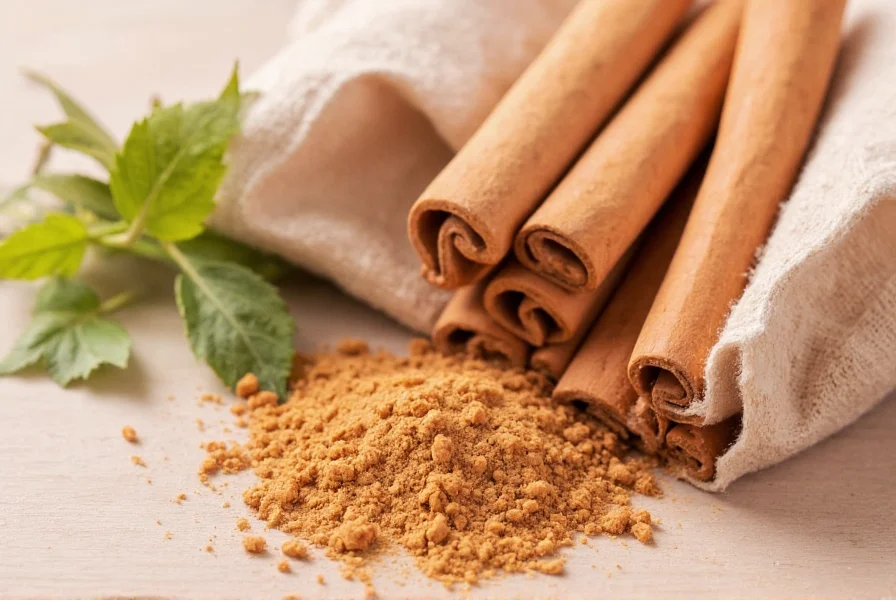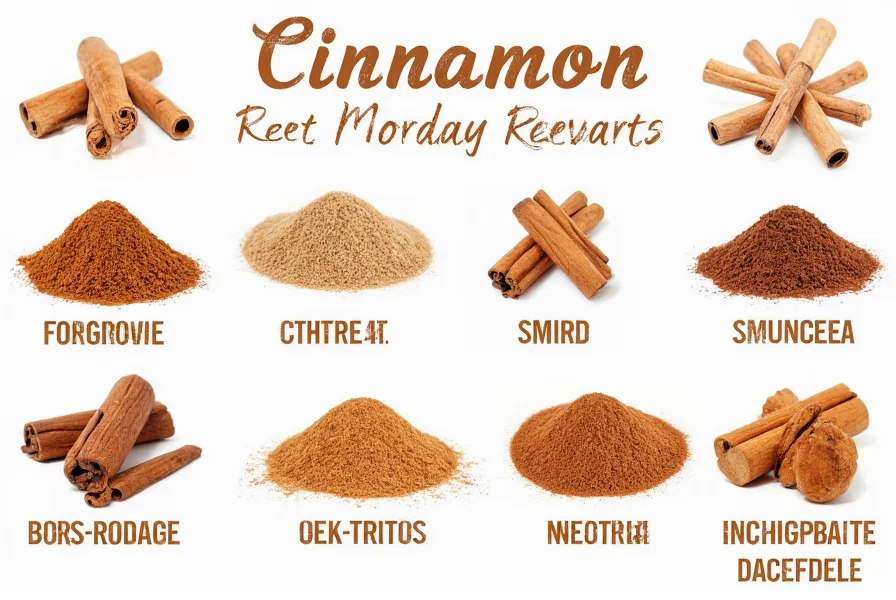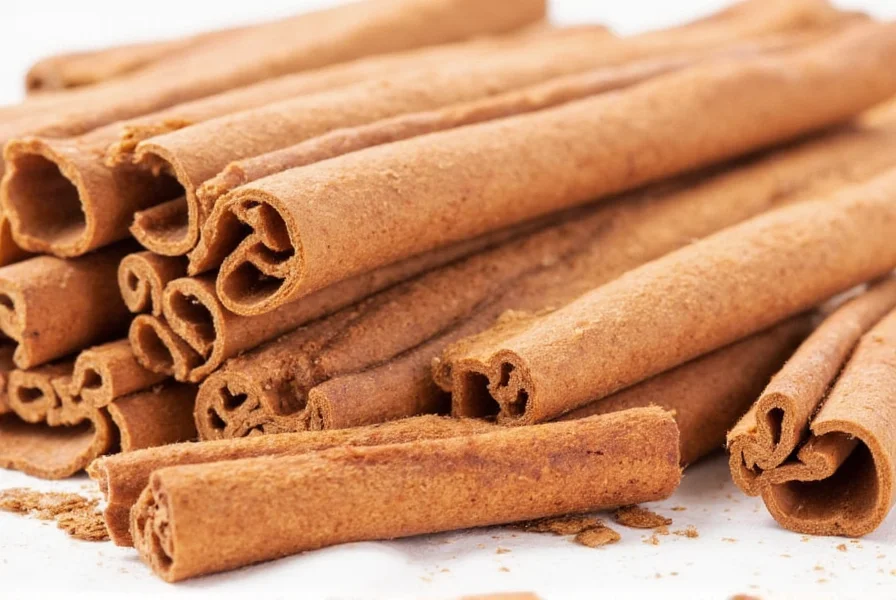While cinnamon offers numerous health benefits, its potential to trigger heartburn remains an important consideration for digestive health. Understanding the relationship between cinnamon consumption and acid reflux can help individuals make informed dietary choices. This article examines the scientific evidence behind cinnamon's effects on digestion and provides practical guidance for those sensitive to this popular spice.
How Cinnamon Affects Digestion
Cinnamon contains cinnamaldehyde, the compound responsible for its distinctive flavor and aroma. Research suggests this compound may affect digestive processes in several ways. For some people, cinnamaldehyde can cause the lower esophageal sphincter (LES) to relax temporarily. When the LES doesn't close properly, stomach acid can reflux into the esophagus, causing the burning sensation known as heartburn.
Additionally, cinnamon's warming properties might increase blood flow to the stomach lining, potentially stimulating acid production in sensitive individuals. The spice's natural acidity (with a pH around 4-5) may also contribute to digestive discomfort when consumed in concentrated forms.
Scientific Evidence on Cinnamon and Heartburn
While comprehensive clinical studies specifically examining cinnamon-induced heartburn are limited, several research findings provide insight into this relationship:
| Study | Findings Related to Digestion | Relevance to Heartburn |
|---|---|---|
| Journal of Agricultural and Food Chemistry (2015) | Identified cinnamaldehyde's effect on gastrointestinal muscle relaxation | Suggests potential mechanism for LES relaxation leading to acid reflux |
| Nutrition Research Reviews (2018) | Reviewed spice effects on digestive health | Noted that concentrated spices may trigger reflux symptoms in sensitive individuals |
| Clinical Gastroenterology Report (2020) | Case studies of food triggers for GERD | Identified cinnamon as occasional trigger among spice-sensitive patients |
These findings suggest that while cinnamon isn't a universal heartburn trigger, it can contribute to symptoms in certain individuals, particularly when consumed in supplement form or large quantities.

Individual Variability in Cinnamon Sensitivity
Not everyone experiences heartburn from cinnamon consumption. Several factors influence individual sensitivity:
- Pre-existing conditions: People with GERD (gastroesophageal reflux disease) or frequent heartburn are more likely to experience issues
- Consumption method: Powdered cinnamon in dry form may be more problematic than when mixed with liquids or foods
- Quantity consumed: Small culinary amounts rarely cause issues, while supplements or large doses increase risk
- Individual physiology: Natural variations in digestive system sensitivity affect response
A 2022 survey of 500 adults with occasional heartburn found that approximately 18% reported cinnamon as a potential trigger when consumed in amounts exceeding typical culinary use (more than 1 teaspoon daily).
Different Cinnamon Forms and Heartburn Risk
The form in which you consume cinnamon significantly affects its potential to cause heartburn:
| Cinnamon Form | Heartburn Risk Level | Recommended Maximum for Sensitive Individuals |
|---|---|---|
| Culinary powder (in food) | Low | 1/2 to 1 teaspoon per serving |
| Dry powder (straight consumption) | High | Avoid completely |
| Cinnamon supplements/capsules | Moderate to High | Follow label instructions; consult doctor |
| Cinnamon essential oil | Very High | Dilute properly; avoid if prone to heartburn |
| Cinnamon in beverages (tea, coffee) | Low to Moderate | 1 stick or 1/4 teaspoon powder per cup |
Dry consumption of cinnamon powder poses the highest risk because it can irritate the throat and esophagus directly before reaching the stomach. The "cinnamon challenge" has been particularly problematic, with numerous reports of severe respiratory and digestive issues.

Managing Cinnamon Consumption with Heartburn Sensitivity
If you enjoy cinnamon but experience heartburn, consider these practical strategies:
- Pair with alkaline foods: Combine cinnamon with foods that may neutralize acidity, like bananas or almond milk
- Avoid dry consumption: Never consume cinnamon powder straight—always mix with liquids or foods
- Monitor portion sizes: Stick to culinary amounts (1/4 to 1/2 teaspoon) rather than larger doses
- Timing matters: Avoid consuming cinnamon close to bedtime when lying down can exacerbate reflux
- Choose quality: Opt for Ceylon cinnamon ("true cinnamon") which contains less coumarin and may be gentler
For those using cinnamon supplements for health benefits, consult with a healthcare provider about appropriate dosing and whether alternatives might be preferable if you have digestive sensitivities.
When to Consult a Healthcare Professional
While occasional heartburn from cinnamon is usually not concerning, seek medical advice if you experience:
- Frequent heartburn (more than twice weekly)
- Difficulty swallowing or painful swallowing
- Heartburn that wakes you from sleep
- Symptoms that persist despite dietary modifications
- Unintended weight loss alongside digestive issues
Chronic heartburn could indicate gastroesophageal reflux disease (GERD) or other digestive conditions that require professional diagnosis and treatment. Never ignore persistent symptoms while focusing solely on cinnamon as a potential trigger.
Frequently Asked Questions
Does cinnamon trigger heartburn more than other spices?
Cinnamon has moderate potential to trigger heartburn compared to other common spices. While hot peppers and black pepper are generally more problematic for acid reflux, cinnamon's unique compounds can affect the lower esophageal sphincter. Individual responses vary significantly—some people tolerate cinnamon well while finding other spices problematic.
Can cinnamon supplements cause more heartburn than culinary cinnamon?
Yes, cinnamon supplements often cause more heartburn than culinary use. Supplements typically contain concentrated cinnamon extracts with higher levels of active compounds. A single supplement capsule may contain the equivalent of several teaspoons of powder, significantly increasing the risk of digestive irritation and LES relaxation that leads to heartburn.
Is Ceylon cinnamon less likely to cause heartburn than Cassia cinnamon?
Some evidence suggests Ceylon cinnamon may be gentler on digestion. While both types contain cinnamaldehyde, Ceylon cinnamon has lower coumarin content and slightly different compound ratios that some sensitive individuals find less irritating. However, the primary factor in heartburn risk remains the quantity consumed rather than the cinnamon type.
How quickly after consuming cinnamon might heartburn occur?
Heartburn from cinnamon typically develops within 30-60 minutes of consumption, though sensitive individuals may experience symptoms sooner. The timing depends on several factors including stomach contents, individual metabolism, and whether the cinnamon was consumed with other potential trigger foods. Dry powder consumption often produces faster onset than cinnamon incorporated into foods.
Can I still use cinnamon if I have acid reflux?
Most people with acid reflux can enjoy cinnamon in moderation. Try using small amounts (1/4 teaspoon or less) incorporated into foods rather than consuming it straight. Monitor your body's response and avoid cinnamon close to bedtime. If you notice consistent heartburn after cinnamon consumption, consider eliminating it temporarily to assess its impact on your symptoms.











 浙公网安备
33010002000092号
浙公网安备
33010002000092号 浙B2-20120091-4
浙B2-20120091-4